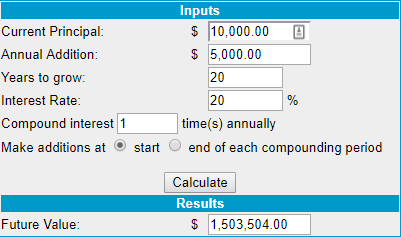
Forex vs Futures Trading involves trading financial derivatives like stocks, currencies, indices or indices. Both markets are a great way for traders to hedge against currency risks and speculate foreign exchange rates. But each market offers its own unique features and capabilities. You should choose a trading market that complements your objectives and goals, no matter what your level of skill or trading style is.
Futures Forex: A key Trader Benefit
One of the greatest advantages of trading futures forex is that they're traded on a centralized market, which provides much more transparency than a spot forex spread. Due to the fact that the contracts trade and are priced on an exchange of a larger size, you know what's going on and can avoid hidden costs which are often incorporated into the spot spread. You can trade futures using leverage. That's an enormous advantage for traders looking to implement day-trading strategies.
Forex Futures Trading Advantages: Futures Forex Trading offers a diversified portfolio that is much larger than the spot Forex market. It allows you to diversify and reduce the risk of losing your capital in the event that one of your positions goes against all the others.

The sizes of futures contracts are available in standard, emini and emicro. This can make it easier for you to size your initial positions or to scale in and out of larger positions, depending on the amount of capital in your account.
Margin for currency futures is an added benefit that allows you to maintain large positions, even without using your personal money. This feature can be very attractive to retail investors and traders.
The benefits of futures are significant, but there are also some downsides. These should be taken into consideration before you decide which trading style to pursue. It is important to consider the potential for counterparty risk, overnight fees, and liquidity concerns.
The risk of a party not fulfilling their contractual obligations can be a significant disadvantage in the spot forex market. Futures trade on a centralized market, so this is only a minor problem.

Margin requirements for Futures and Forex
There are two kinds of margins in futures: initial and maintaining. Initial margin requirements must be met at the time of opening your account. Maintenance margin requirements are usually lower. If your initial margin is not met, your account could be automatically liquidated. You may lose all your money.
High volatility and low liquidity are other disadvantages of trading futures. This can make long-term trade strategies difficult to implement.
Forex vs Futures Trading is a complex, important question. You should do research before choosing which type of trading to pursue. This will help to ensure that you choose a market where you can achieve your long-term goals.
FAQ
What are the benefits to investing through a mutual funds?
-
Low cost – buying shares directly from companies is costly. A mutual fund can be cheaper than buying shares directly.
-
Diversification - most mutual funds contain a variety of different securities. One type of security will lose value while others will increase in value.
-
Professional management - professional mangers ensure that the fund only holds securities that are compatible with its objectives.
-
Liquidity is a mutual fund that gives you quick access to cash. You can withdraw money whenever you like.
-
Tax efficiency- Mutual funds can be tax efficient. So, your capital gains and losses are not a concern until you sell the shares.
-
No transaction costs - no commissions are charged for buying and selling shares.
-
Mutual funds are easy to use. You only need a bank account, and some money.
-
Flexibility: You can easily change your holdings without incurring additional charges.
-
Access to information: You can see what's happening in the fund and its performance.
-
Ask questions and get answers from fund managers about investment advice.
-
Security - you know exactly what kind of security you are holding.
-
You can take control of the fund's investment decisions.
-
Portfolio tracking: You can track your portfolio's performance over time.
-
Easy withdrawal - You can withdraw money from the fund quickly.
There are disadvantages to investing through mutual funds
-
Limited investment opportunities - mutual funds may not offer all investment opportunities.
-
High expense ratio: Brokerage fees, administrative fees, as well as operating expenses, are all expenses that come with owning a part of a mutual funds. These expenses can reduce your return.
-
Lack of liquidity - many mutual fund do not accept deposits. They can only be bought with cash. This limits your investment options.
-
Poor customer service: There is no single point of contact for mutual fund customers who have problems. Instead, you must deal with the fund's salespeople, brokers, and administrators.
-
It is risky: If the fund goes under, you could lose all of your investments.
How Does Inflation Affect the Stock Market?
Inflation affects the stock markets because investors must pay more each year to buy goods and services. As prices rise, stocks fall. This is why it's important to buy shares at a discount.
How do I invest my money in the stock markets?
Brokers allow you to buy or sell securities. A broker buys or sells securities for you. Trades of securities are subject to brokerage commissions.
Banks typically charge higher fees for brokers. Banks are often able to offer better rates as they don't make a profit selling securities.
You must open an account at a bank or broker if you wish to invest in stocks.
If you use a broker, he will tell you how much it costs to buy or sell securities. This fee will be calculated based on the transaction size.
You should ask your broker about:
-
Minimum amount required to open a trading account
-
What additional fees might apply if your position is closed before expiration?
-
what happens if you lose more than $5,000 in one day
-
How many days can you maintain positions without paying taxes
-
whether you can borrow against your portfolio
-
Transfer funds between accounts
-
how long it takes to settle transactions
-
The best way to sell or buy securities
-
How to Avoid fraud
-
how to get help if you need it
-
whether you can stop trading at any time
-
What trades must you report to the government
-
Reports that you must file with the SEC
-
whether you must keep records of your transactions
-
What requirements are there to register with SEC
-
What is registration?
-
How does it affect you?
-
Who needs to be registered?
-
When should I register?
What is a Reit?
An REIT (real estate investment trust) is an entity that has income-producing properties, such as apartments, shopping centers, office building, hotels, and industrial parks. They are publicly traded companies which pay dividends to shareholders rather than corporate taxes.
They are similar in nature to corporations except that they do not own any goods but property.
What are the benefits to owning stocks
Stocks are less volatile than bonds. If a company goes under, its shares' value will drop dramatically.
The share price can rise if a company expands.
For capital raising, companies will often issue new shares. Investors can then purchase more shares of the company.
To borrow money, companies use debt financing. This gives them access to cheap credit, which enables them to grow faster.
When a company has a good product, then people tend to buy it. The stock's price will rise as more people demand it.
As long as the company continues producing products that people love, the stock price should not fall.
How are share prices established?
Investors decide the share price. They are looking to return their investment. They want to make profits from the company. So they purchase shares at a set price. If the share price increases, the investor makes more money. If the share price falls, then the investor loses money.
An investor's main objective is to make as many dollars as possible. This is why they invest in companies. It helps them to earn lots of money.
How can I select a reliable investment company?
A good investment manager will offer competitive fees, top-quality management and a diverse portfolio. Fees are typically charged based on the type of security held in your account. While some companies do not charge any fees for cash holding, others charge a flat fee per annum regardless of how much you deposit. Others charge a percentage on your total assets.
You also need to know their performance history. Poor track records may mean that a company is not suitable for you. Avoid companies that have low net asset valuation (NAV) or high volatility NAVs.
Finally, you need to check their investment philosophy. Investment companies should be prepared to take on more risk in order to earn higher returns. If they're unwilling to take these risks, they might not be capable of meeting your expectations.
Statistics
- US resident who opens a new IBKR Pro individual or joint account receives a 0.25% rate reduction on margin loans. (nerdwallet.com)
- Our focus on Main Street investors reflects the fact that American households own $38 trillion worth of equities, more than 59 percent of the U.S. equity market either directly or indirectly through mutual funds, retirement accounts, and other investments. (sec.gov)
- Individuals with very limited financial experience are either terrified by horror stories of average investors losing 50% of their portfolio value or are beguiled by "hot tips" that bear the promise of huge rewards but seldom pay off. (investopedia.com)
- For instance, an individual or entity that owns 100,000 shares of a company with one million outstanding shares would have a 10% ownership stake. (investopedia.com)
External Links
How To
What are the best ways to invest in bonds?
You will need to purchase a bond investment fund. They pay you back at regular intervals, despite the low interest rates. These interest rates can be repaid at regular intervals, which means you will make more money.
There are many ways you can invest in bonds.
-
Directly buying individual bonds.
-
Purchase of shares in a bond investment
-
Investing through a broker or bank
-
Investing through an institution of finance
-
Investing with a pension plan
-
Invest directly through a broker.
-
Investing in a mutual-fund.
-
Investing via a unit trust
-
Investing via a life policy
-
Investing via a private equity fund
-
Investing in an index-linked investment fund
-
Investing via a hedge fund